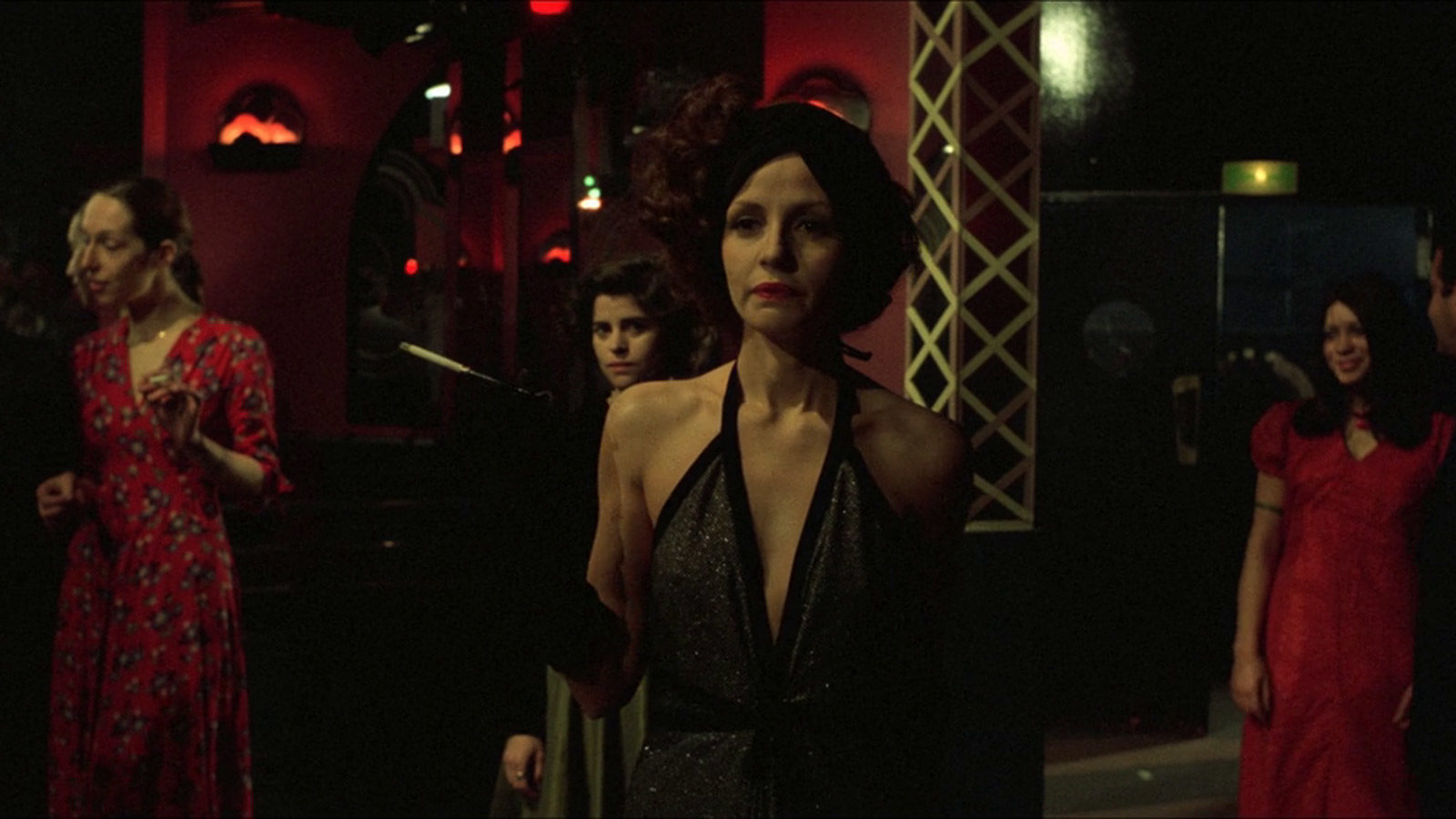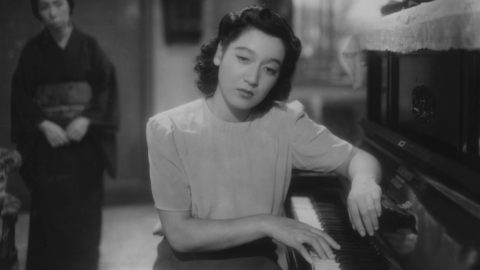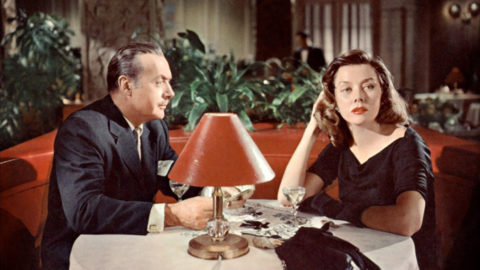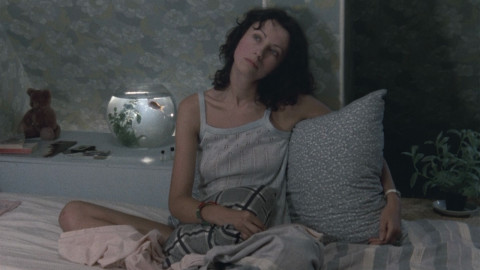By Matías Piñeiro in the May-June 2016 Issue

In the Moment: Juliet Berto in Duelle (1976)
Je ne sais quoi
Daughter of the French New Wave Juliet Berto’s sense of presence, of being here and now in the frame, coincides with cinema’s essential obsession with capturing the present tense. In the fantasy Duelle, her final collaboration with Jacques Rivette, she plays Leni, Queen of the Moon, a mysterious character in a cosmic duel with Viva, Queen of the Sun (Bulle Ogier).

From the May-June 2016 Issue
Also in this issue
Berto’s performance channels and stylizes the composed tone that holds this universe together. Her character is not an extension of herself, as in La Chinoise (67) or even Rivette’s Celine and Julie Go Boating (74). In Duelle, her actions and reactions never fall into the categories of either the natural or the fresh—spontaneity is too thin of an effect in the otherworldly battle this film presents. The peculiar manner in which she talks, moves through space, and stares at people and things, fills the screen and beyond with an absolute belief in the new world she inhabits.
In Berto’s first scene she enters a solitary hotel like a femme fatale in a state of affected weakness. But Berto deconstructs the type. She speaks in a strong voice, breaks her lines with awkward pauses, destroying any seamless identification, and bites her finger, like the innocent girl that she clearly is not. Soon she goes about seducing the young female concierge to help her find a vanished lover. These deviant gestures establish the eerie territory in which she sets her character’s preternatural machinations.
The strength of Berto’s performance comes from the intersection of this non-naturalistic line of acting with a silent-era quality she bears naturally: her photogénie. And in her case, the photogenic energy is even more original because it is freed from the male gaze of yesteryear. Berto attacks that dominance with a character that is distant, queer, and unpredictably powerful.







